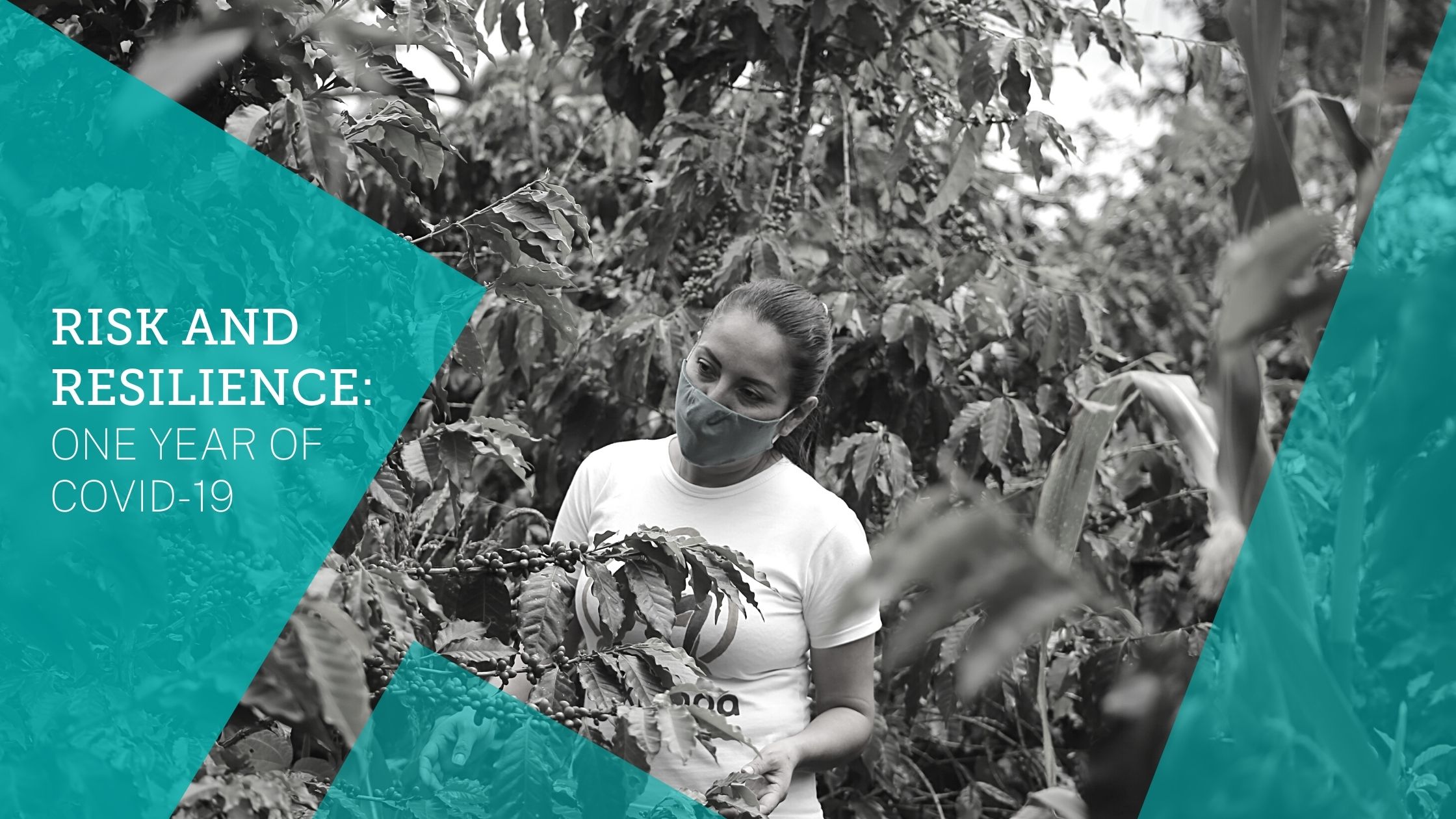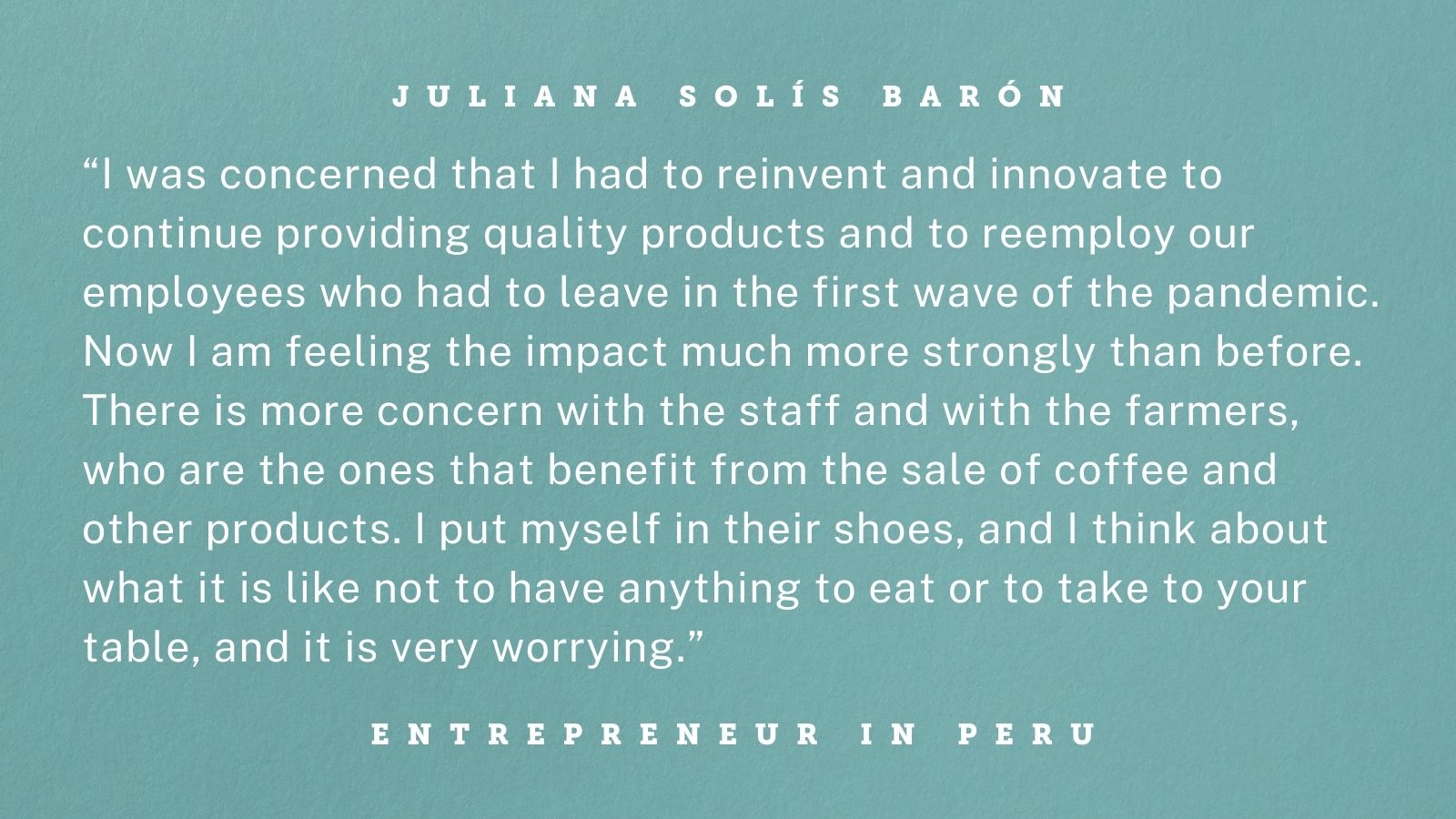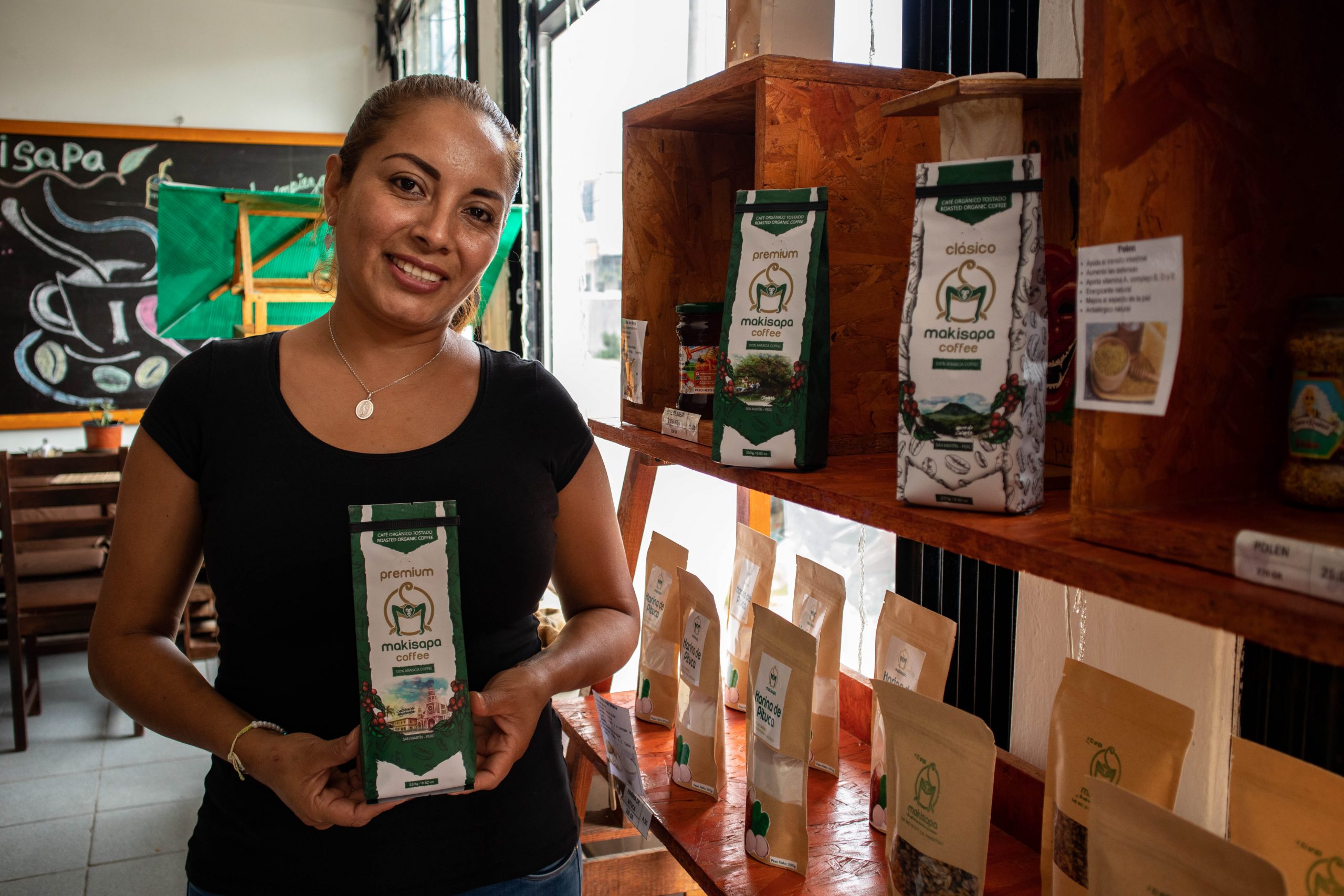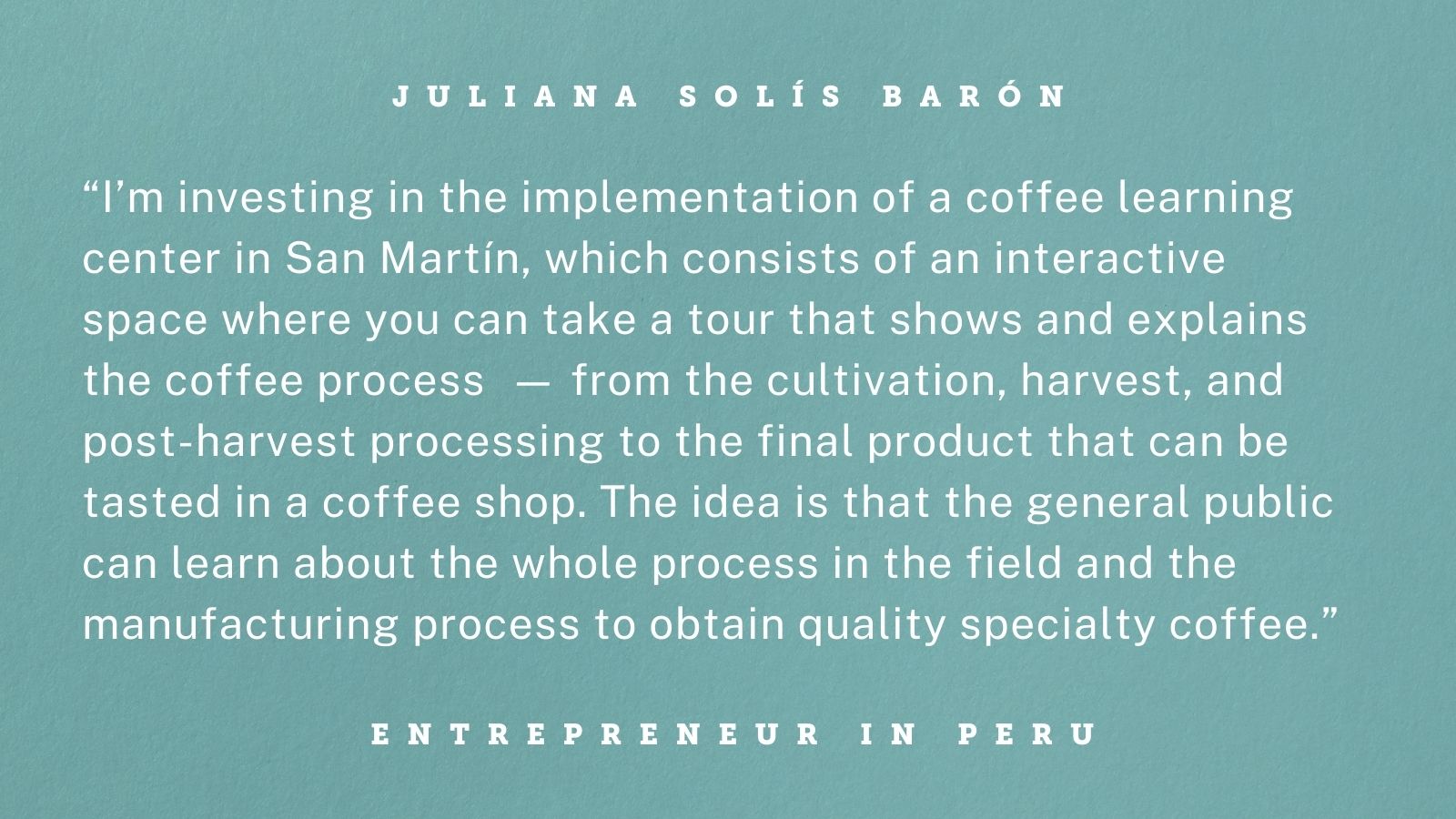One Year of COVID-19: Juliana Solís Barón, Entrepreneur in Peru
In this series, we check back with TechnoServe program participants previously featured on our blog, documenting how their lives have changed and progressed. In our previous story on Juliana Solís Barón, an entrepreneur and café owner in Peru, she was learning how to reinvent her business in response to strict lockdown restrictions. Find out how she is doing now, five months later.
Entrepreneur in Peru

Peru has been one of the countries in Latin America hardest hit by the pandemic. Despite implementing some of the strictest lockdown measures in the world, the country now has more than 1.5 million confirmed cases. For many entrepreneurs in Peru, this has meant fewer customers, higher expenses, and a need to quickly adapt their businesses.
In many areas of Peru, restrictions that impacted businesses included:
- A curfew from 9:00 p.m. until 4:00 a.m.
- No movement outside the home allowed on Sundays
- No private vehicles on the roads on Sundays
- Only one family member allowed at grocery stores, banks, pharmacies, etc.
- Limited capacity at restaurants and other businesses
Unexpected Challenges for Entrepreneur in Peru
For small business owners like Juliana Solís Barón, the pandemic and resultant lockdowns have created new challenges and exacerbated existing issues in an already uncertain business environment. When we first featured Juliana in October of last year, she was learning how to reinvent Makisapa, her coffee shop in northern Peru’s San Martín region.

Business Training Helps Entrepreneur in Peru Adapt
When Juliana first joined the Coffee Alliance for Excellence (CAFE) program in February 2020, she did not know the immense challenges looming on the horizon. CAFE is a public-private partnership with TechnoServe, the U.S. Agency for International Development, global coffee roaster JDE, and coffee exporter Perhusa.
Through the program, Juliana was hoping to learn the business skills to attract investment and take her enterprise to the next level — ultimately helping her support the coffee industry around her, including farmers like her grandparents. But when the COVID-19 pandemic hit, Juliana had to re-think her entire business.
With continuous support from TechnoServe trainers, Juliana and her team learned how to incorporate essential health protocols into their daily operations. They started making coffee deliveries by bicycle to promote home consumption and transformed the coffee shop into a market, with a wide variety of local products for purchase.
TechnoServe has supported us in a selfless way, and they have put themselves in our shoes and accompanied us amid the difficult situation that we have gone through. They have provided us with training, and they have helped us come out of our shells, be more expressive, and do some business. The most important thing was supporting me by encouraging me to continue fighting against this pandemic situation by innovating. With its group of trainers, TechnoServe was always aware of Makisapa’s situation. I have never felt alone.”
— Juliana Solís Barón

Growing a Business Despite Uncertainty
Although Juliana’s life and business look much different than they did a year ago, she is committed to innovation and progress.

Despite the circumstances, the business has grown. It is perhaps going much better than before, since our customers are now more responsibly consuming organic products, and that has given us higher sales. We have eight part-time employees. Our monthly income is around $6,758 (25,000 soles) from the coffee shop and $2,703 (10,000 soles) in roasted, ground coffee in packages, [which we] ship nationwide. We also had the possibility to expand the cafe and include more tables due to the demand we had.”
— Juliana Solís Barón
A Silver Lining
Despite the many challenges Juliana has faced over the last year, there have also been some silver linings. One of the most significant changes has been having more time to spend with her family and having a better work-life balance.
Juliana is also passionate about giving back to her community in San Martín.
I feel that now I have a personal and social commitment to support new enterprises of young people, sharing with them the knowledge and experience I have gained during this time. I am motivated by the [coffee] farmers and my collaborators. They are the ones who now drive me the most. I’m also [motivated] to achieve my goals as an entrepreneur and in the future to have a stronger company to help more people.”
— Juliana Solís Barón




